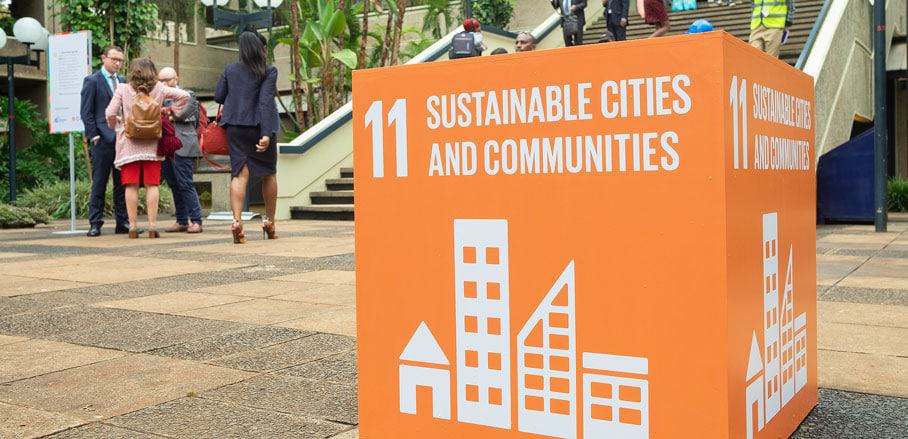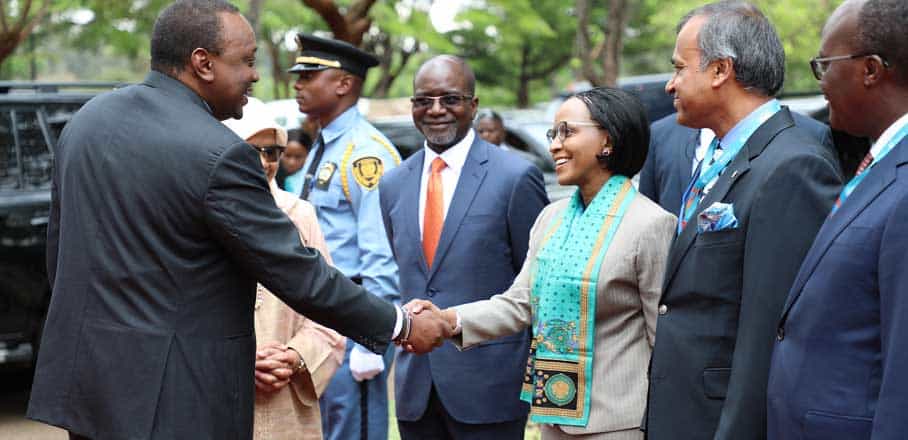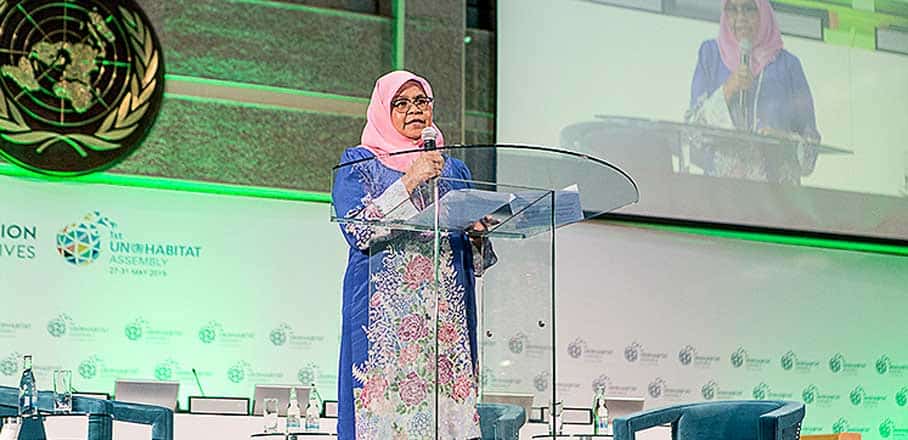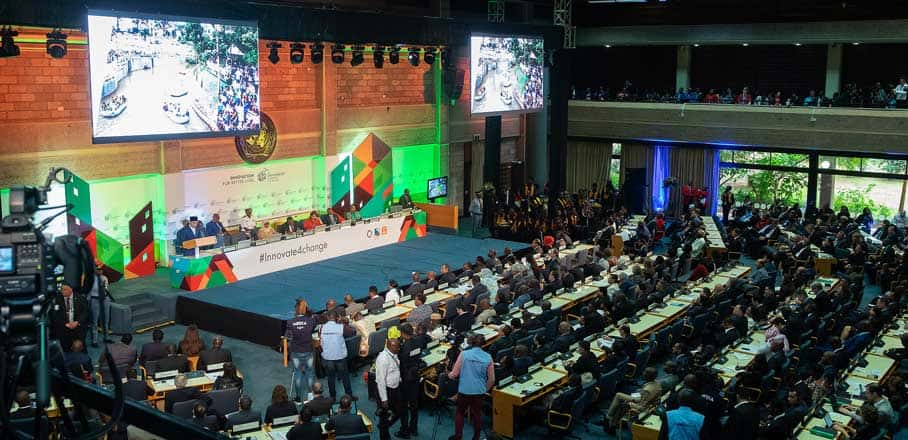Innovation for Better Quality of Life in Cities and Communities: First UN-Habitat Assembly
From 27-31 May 2019, the first UN-Habitat assembly is taking place in Kenya’s capital city of Nairobi. Reuben Kyama reports directly from the conference.
At the first UN-Habitat Assembly in Nairobi, delegates reaffirmed that the provision of urban services is crucial to creating a better quality of life for citizens. The United Nations says some 2 billion people globally lack access to solid waste collection services while 3 billion others do not have access to controlled waste disposal facilities
Addressing the participants through a video link, Mr. António Guterres, United Nations Secretary-General said about 60 per cent of urban infrastructure needed by 2030 is yet to be built. “That creates great opportunities,” the U.N. chief said, adding that the global gathering had come at “an important juncture.”
But health and urban planning officials pointed out that clearing cities and neighborhoods safely of trash and waste is crucial in preventing a dramatic rise in global pollution. UN-Habitat Executive Director Maimunah Mohd Sharif says rapid urbanisation is exacerbating the problem. “Every week, 3 million people move from rural areas to towns and cities,” she said, adding that by 2050 there will be an additional 2.5 billion urban dwellers, a vast majority of them in Africa and Asia. “This means,” she said, “the urban growth is happening fastest in the developing countries where governments and institutions are often least able to cope.”

© 2019 UN Habitat
“We are meeting here to look for solutions, and to network so that we can engage,” said the senior U.N. official referring to the first U.N. Habitat Assembly, taking place in Nairobi, Kenya. The Assembly is an important milestone in the yearlong governance reform process of UN-Habitat, and will strengthen its role as focal point and knowledge broker for sustainable urbanisation and urban development. The special theme of the assembly revolves around the issue of finding innovative ways to improve urban life.
It is being attended by ministers, government officials, campaigners, business people and representatives from civil society groups.
Speaking at the official opening, Kenyan President Uhuru Kenyatta stressed the need for international collaboration saying many societies were ill prepared to plan properly.
Earlier in the week, delegates from the member states of the United Nations elected Ms. Martha Delgado from Mexico as President of the first session of the UN-Habitat Assembly. Delgado thanked the delegates from the member states for the honour. “I can assure you I will do my best,” she said.

© 2019 Julius Mwelu/UNHabitat
Besides the main conference, there are various side events, including an Urban Expo featuring innovations from more than 40 companies. Participants are calling for collective action to address the challenges of rapid urbanisation.
Dr. Jennie Moore, Director for Institute Sustainability at the Canadian-based British Columbia Institute of Technology, said her institution is showcasing some best practices in sustainable housing and urban development. “We are working with the EcoCity Standards, a learning tool developed in collaboration with communities around the world to help people understand the issues facing them, what ideas have come up from other communities and solutions to those challenges,” she said.
In Cairo, Egypt, for example, the method was used to help a local community tackle a problem of contaminated water from the city distribution system. “They were concerned about the water contamination, and so EcoCity Builders partnered with an academic institution to address the issue,” she said. A faculty member and students went out and worked with the community, sampled the water and located where the water was leaking. They then partnered with the utility firm and fixed the problem.
Another participant is Brian Chege, co-founder of Green Hub, a Kenyan design consulting firm that incorporates technology into building and construction. He says the start-up venture came into existence as a proactive approach to set up a one-stop shop, a space whereby green solutions incorporated in housing designs are readily available. “Looking at it largely, there is a global shift towards moving to green and sustainable buildings,” Chege adds.
In Africa, millions of people, especially low-income earners, are faced with insecure tenure and inadequate housing. But there are inspiring examples of communities that are transforming their neighbourhoods through innovative affordable housing and upgrading solutions.

© 2019 UN Habitat
Sarah Nandudu, coordinator of Uganda’s National Slum Dwellers Federation and one of the winners of the 2019 Community-Led Habitat Awards for Africa, an initiative of the CoHabitat Network, said she hoped governments would recognize efforts from poor communities. “My key takeaway from this assembly is that our governments have promised that they will do exactly what we have heard from here,” she said. “My only humble prayer is let’s walk the talk this time and transform the lives of the urban poor,” Nandudu pleads.
The week-long global assembly has attracted more than 3,000 delegates among them, ministers and high-level government representatives from 116 countries, and civil society groups. It will conclude on Friday with a Ministerial Declaration that will underline Member State’s commitment to support UN-Habitat’s vision of a better quality of live for all in an urbanising world.
The UN-Habitat Assembly will adopt global norms and policies that will guide how cities and communities are planned, managed and governed. Ms. Sharif said: “This Assembly will only happen every four years. The world is now watching. We must make sure we turn our words into action to improve the lives of everyone in today’s urbanising world.”
